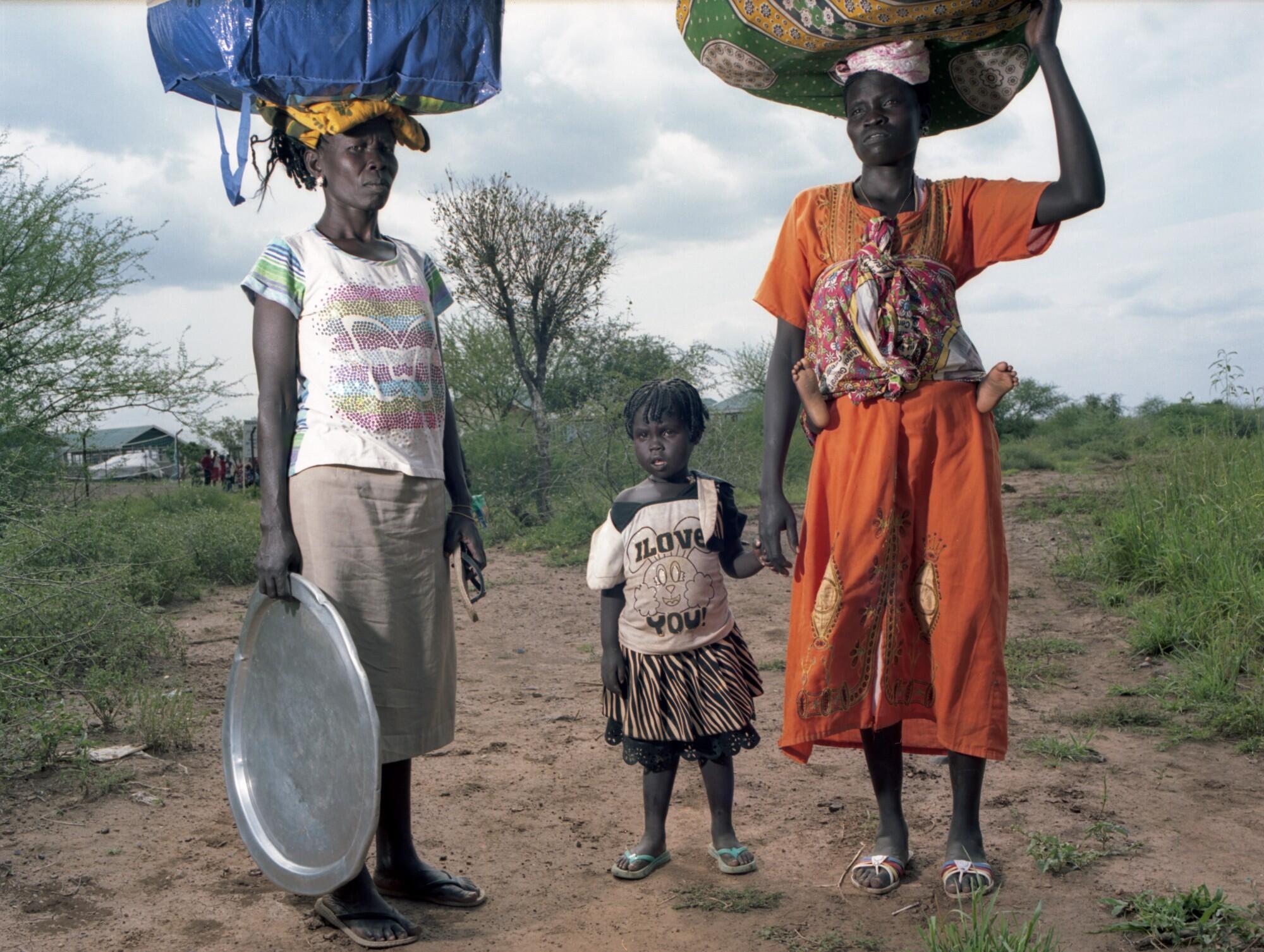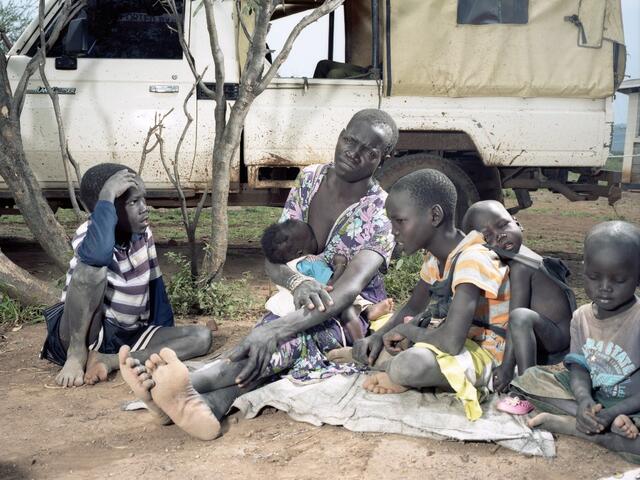
The air is thick and the soil is dusty underfoot at Nadapal transit site, a cluster of breeze-block buildings which form a refugee registration area on the Kenyan border with South Sudan.
A chorus of raised voices floats along the breeze from the large communal living spaces: children playing and crying, mothers scolding and comforting. A moment of familiarity amidst a backdrop of sheer terror.
An estimated 10,000 have been killed and over two million forced to flee their homes since civil war erupted in South Sudan on this day in 2013. Despite an — albeit fragile — peace deal signed in August 2015, intense fighting continues to flare up on a regular basis ever since.
The reoccurring fighting has displaced much of the population’s farmers — the country’s main food source. As they have fled, abandoning their crops, violence has disrupted trade routes. With aid groups forced to suspend operations, South Sudan is facing the world’s most severe food crisis in a country where there is only one doctor for every 10,000 people.
Left widowed or abandoned with no means of income to buy food and nowhere to access health care, vulnerable women and children will often choose to flee. They make up nine out of 10 refugees arriving at Nadapal transit site, many of whom traveled for weeks by foot, hiding in the bush, to reach safety.
The International Rescue Committee has been one of the largest providers of aid in South Sudan for over 20 years, offering emergency assistance throughout decades of war. While we have been forced periodically to suspend our efforts due to violence, the IRC continues to provide medical, psychosocial and legal support, as well as water and sanitation services and jobs training to vulnerable South Sudanese in hard-to-reach areas.
Across the border, in Kenya’s Kakuma camp, the IRC runs a hospital, six clinics and an ambulance service — managing the largest refugee camp health care programme in the world.
Three years in, the violence continues, with no end in sight. Women continue to flee. We asked three of them, who have risked everything to reach the relative safety of Nadapal transit camp so their children have a better shot at a future. This is what they said.

Joyce
29 — from Torit, Eastern Equatoria
Joyce and her children just crossed the border. They are all suffering from malnutrition. At Nadapal transit site, the IRC conducts medical assessments and refers critical patients to our nearby hospital. Exhausted and waiting for assistance, she explains, behind dull eyes:
Bandits came and killed people in my village. We hid in the bush for 10 days, picking Okra leaves to eat.
We eventually got a lift but the militia were shooting at us, they shot the car in front but missed us. I held my children tight in fear but we managed to get away.
My husband was killed in the fighting in 2013, so too my parents — the whole family. I found another man to help me take care of the children but he left one day so I decided to travel alone with my children.
I didn’t think the war would come again.
Read more on Medium